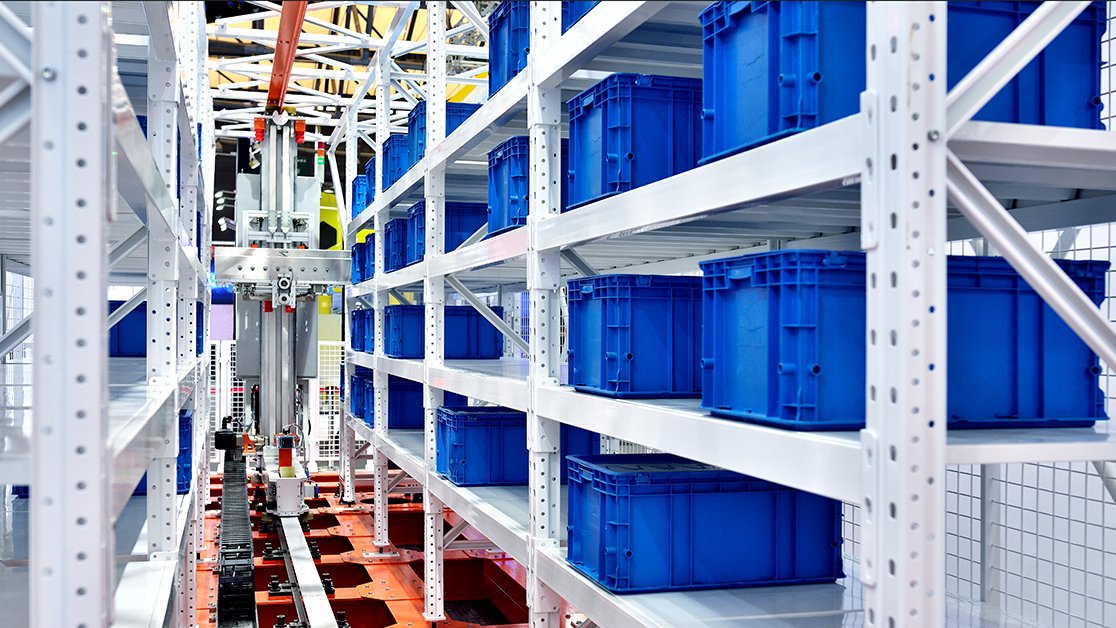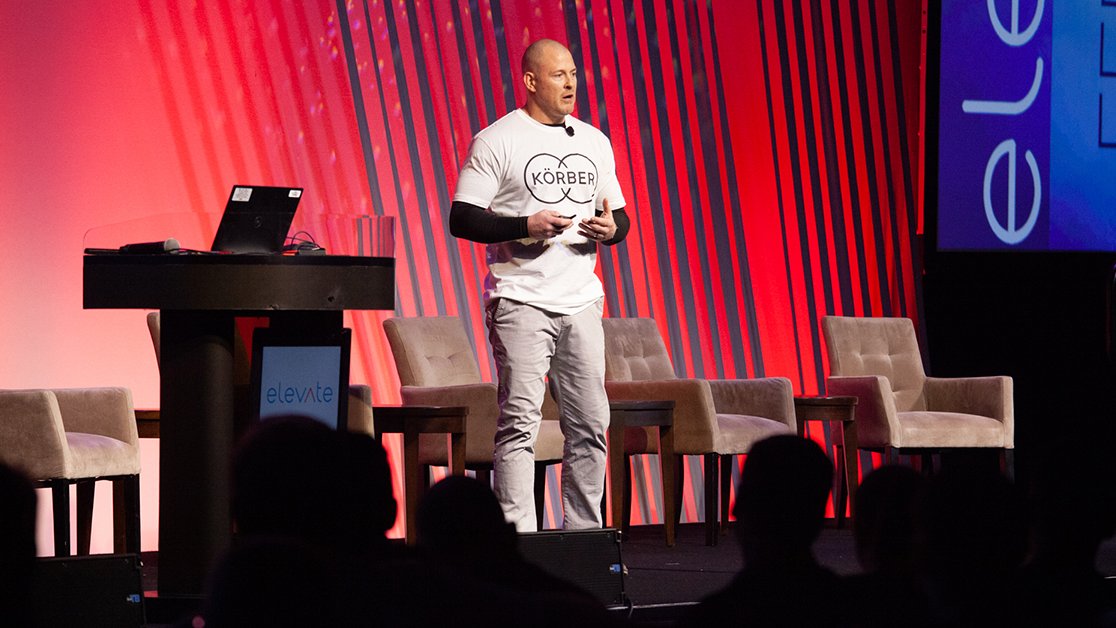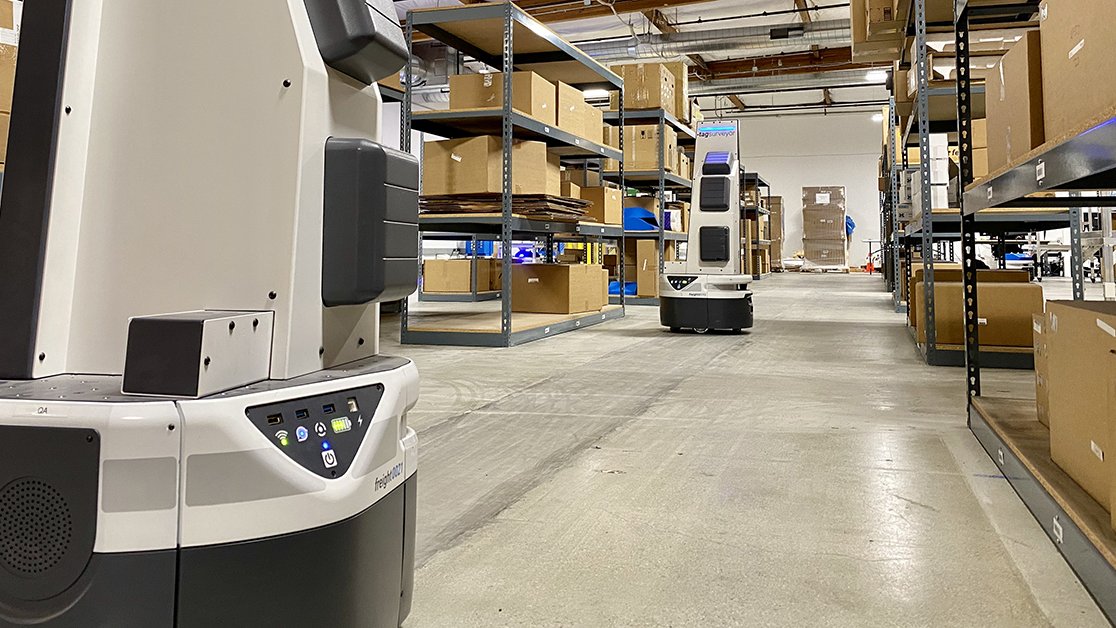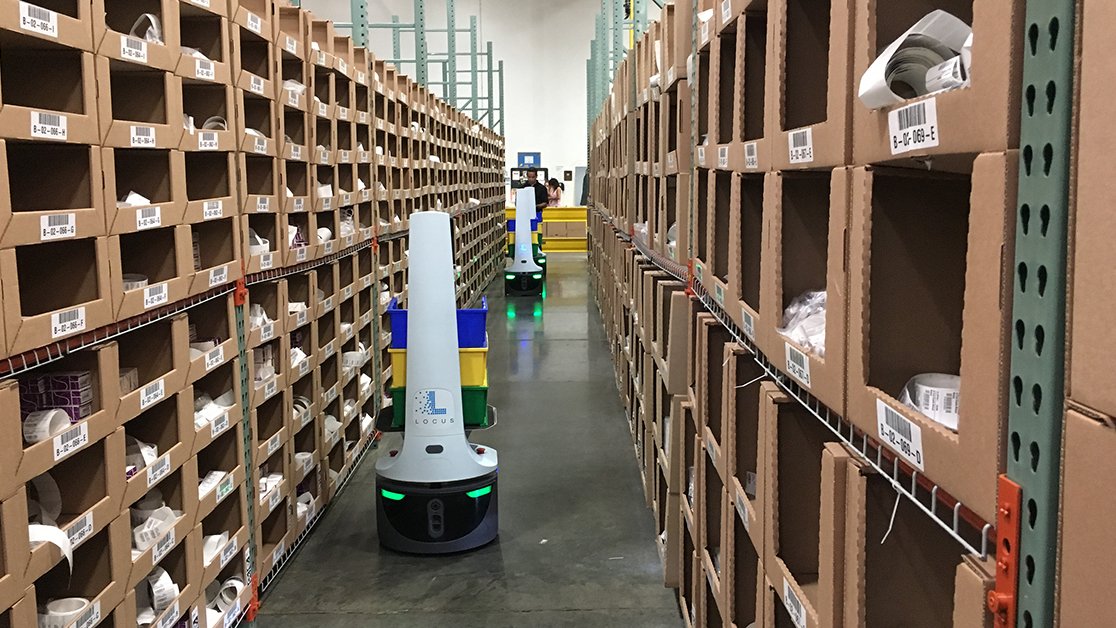HighJump and Körber initiated a robotics business unit in the fourth quarter of 2019 and has been building a global presence with the ability to advise, sell, implement, integrate, support, and develop intellectual property for warehouse and supply chain robotics. This global organization is leveraging the deep base of existing resources while strategically positioning specialized resources in its effort to become the leading integrator of flexible automation for the supply chain.
The emphasis that Körber is placing on robotics was evident from the start at Elevate 2020, which was sponsored by six different AMR competitors, each with highly visible presences at the event. This includes two strategic partners of Körber (Locus Robotics and Fetch Robotics) and four others that Körber recognizes as significant competitors in the market, including 6 River Systems, IAM Robotics, Vecna, and Next Shift).
Not only were robotics companies a featured element at Elevate, but Körber also provided multiple robot demonstrations. For the attendee gift delivery, Körber successfully showcased Fetch Robotics and Locus Robotics operating at different points in the same process. As far as I know, this is the first time that two competing AMR vendors have played nice within a single process.
At Elevate, we also successfully showcased a voice integration to Fetch Robotics during the keynotes. A voice pick process was used to engage the robot which then moved through the audience to deliver an “order” to keynote speaker Sean Elliott, CTO Körber Supply Chain. This demo drew a lot of “oohs” and “ahhs” from the crowd. This was the first time many people saw robotics in such a capacity. Put on top of that the voice integration with the robotics that prompted an action without any physical interaction. You could almost see the lightbulbs turning on for those in attendance seeing these technologies converge before their eyes. It was a special Elevate moment.
Additionally, during the Keynote session, Körber Supply Chain VP of Robotics John Santagate (that’s me) announced our strategic global partnership with Fetch Robotics. This partnership, coupled with the recently announced partnership with Locus Robotics and a partnership with Geek+ through the Cohesio Group, give Körber a deep portfolio of AMR capabilities to address the many workflows that exist within our customer ecosystem.
In addition to the partnership announcements and very cool demos, we also had a dedicated robotics track. The track’s sessions included a wide range of coverage presented by customers, partners, and industry influencers. One of which was a session to educate the audience on the basics of AMR that was presented by Melonee Wise, CEO of Fetch Robotics. Other speakers in the robotics track included:
- John Santagate, VP of Robotics at Körber Supply Chain
- Nishan Wishan, CEO, Cohesio Group
- Karen Leavitt, CMO, Locus Robotics
- Dean Hoerlein, VP of Logistics, Verst Logistics
- Keith Shaw, Editor-in-Chief, Robotics Business Review
- Vince Martinelli, Head of Product & Marketing, RightHand Robotics
- Leif Jentoft, Co-Founder & CTO, RightHand Robotics
- Richard Evans, CEO, iWMS
- Guy Courtain, Channel Lead, Six River Systems
- Wes Reid, Senior Product Manager, IAM Robotics
- Stefan Nusser, VP of Product, Fetch Robotics
This represents the first time that a supply chain software company fully featured a dedicated track so rich with content related to warehouse robotics. Not to mention that two of the winners of the Top Women Leaders in Supply Chain awards were representatives from leading autonomous mobile robotics companies: Melonee Wise, CEO Fetch Robotics, and Karen Leavitt, CMO of Locus Robotics.




